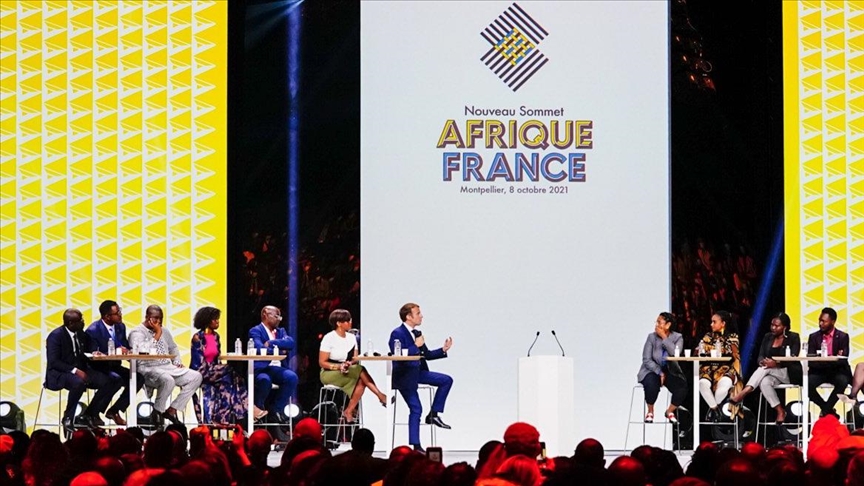Africa-France summit held without African heads of state
Macron says France must assume its fair share of ‘Africanness’
 Photo credit: https://twitter.com/EmmanuelMacron
Photo credit: https://twitter.com/EmmanuelMacron
KIGALI, Rwanda
Hundreds of young people from African “civil society” gathered Friday for a one-day Africa-France summit in the southern French city of Montpellier.
For the first time since 1973 when France-Africa summits began and before it was rebranded, Africa-France, no African head of state was invited.
French President Emmanuel Macron invited 3,000 people for the summit, including young entrepreneurs, researchers, students, artists, sports personalities and representatives from associations on the African continent who met their French national counterparts and members of the African diaspora to discuss economic, political and cultural matters.
Ismael Buchanan, senior lecturer at the political science department at the University of Rwanda, thinks the new summit format is about Macron‘s “politics of reform towards France-Africa relations.”
France aims at shifting its strategy toward Africa by moving from classic bilateral relations with governments to dealing with Africa’s young-led generation, and African civil society organizations, according to Buchanan.
“Maybe he thinks that this type of relationship may build a sort of trust and change the historical complexity between France and Africa,” he told Anadolu Agency.
Macron said France must assume its fair share of “Africanness,” noting that nearly 7 million French people are intimately linked to Africa, according to French media outlet, AFP.
He reiterated France’s pledge to return to Benin at the end of October, 26 artworks that were looted from the Abomey Palace at the end of the 19th century.
The art is reportedly kept at the Quai Branly-Jacques-Chirac museum in Paris.
That was part of a commitment made in November 2018 to return the pieces claimed by Benin from the“Behanzin Treasury looted in 1892 during the colonial wars.
According to the French presidency, the new summit approach is meant to allow “the voice of Africa's youth to be listened to” while leaving behind obsolete methods and networks.
The summit comes at a time when France's influence is being challenged in its former colonies.
“This type of relationship that Macron is attempting with some African countries, in case he gets a chance to win it, believe me with France’s traditional approaches towards Africa, it can change their history in Africa but of course, it remains to be seen how he will do that,” said Buchanan.
Also on the agenda were France's military operations on the continent, sovereignty, governance and democracy, according to Elysee Palace.
A panel of 12 African youngsters from DR Congo, Mali, Ivory Coast, Tunisia, South Africa, Kenya and elsewhere met with Macron during a plenary session.
Buchanan said Macron is trying to empower African youth given Africa’s new external partners who are keen on renewing and building relations with the continent.
“So with that kind of approach, I think France may change its historical past on the African continent,” he said.
France framed the gathering as one meant to “provide a new foundation” for the relationship.
But Cameroonian philosopher Achille Mbembe believes that to a large extent, France is “far from new movements and political and cultural experiments” carried out by African youth though its “recognition of the perversion of its colonial past is important.”








